Is the State of Israel Secular or Jewish?
Summary
There is to be a political restoration of the Jews … There will be a native government again; there
will again be the form of a political body; a state shall be incorporated …
[Charles Spurgeon, Sermon on Ezekiel 37:1-10, 1864]
The State of Israel was declared on May 14, 1948. The Declaration did not claim a “Jewish state” but rather a secular Western-style democratic state embracing all its current inhabitants. But since the Declaration also specifically welcomed Jewish immigrants, many concluded the state had deep religious significance – a homeland for the Jewish people as promised in the Jewish scriptures (Zionism). So some Jews and Christians claimed that the creation of the State of Israel was “of God”.
In 2018 Israel’s position on this was clarified by the passing of a new Basic Law – the Nation-state Law. This formally declared that Israel was a Jewish state. Many followers of Jesus (Yeshua) saw this as partial fulfillment of prophecy, for-shadowing the Millennial reign of Christ. Others, including ultra-orthodox Jews and the institutionalized churches, disagreed. They claimed the creation of the State of Israel was “of man” and that this new Basic Law should be repealed.
See also Understanding Israel’s Flag
To go deeper we need to look at the formal Declaration of the Establishment of the State of Israel in 1948, link. To quote:
THE STATE OF ISRAEL will be open for Jewish immigration and for the Ingathering of the Exiles; it will foster the development of the country for the benefit of all its inhabitants; it will be based on freedom, justice and peace as envisaged by the prophets of Israel; it will ensure complete equality of social and political rights to all its inhabitants irrespective of religion, race or sex; it will guarantee freedom of religion, conscience, language, education and culture; it will safeguard the Holy Places of all religions; and it will be faithful to the principles of the Charter of the United Nations. [Israeli Declaration of Independence, May 14, 1948]
Note that there is no specific mention of, or reference to “the God of Israel”, or to a “Jewish state”. The Declaration is like any Western democratic state in that it guarantees freedom of all religions. So in 1948 Israel was declared a secular democracy where Judaism was privileged (in the sense that it was open for Jewish immigration), link.
Although the Balfour Declaration of 1917 “viewed with favor the establishment in Palestine of a national home for the Jewish people” (implying a Jewish state), Israel’s 1948 Declaration omitted any specific mention of a Jewish state. Formally, Israel was declared a secular democracy.
The 2018 Nation-state Law
In July 2018 Israel passed a new Basic Law (Basic Laws are the constitutional laws of the State of Israel). It was called: ISRAEL – THE NATION STATE OF THE JEWISH PEOPLE and includes the following statements, link:
- The Land of Israel is the historical homeland of the Jewish people
- The State of Israel is the nation state of the Jewish People, in which it realizes its natural, cultural, religious and historical right to self-determination
- The State shall be open for Jewish immigration, and for the Ingathering of the Exiles
- Jerusalem, complete and united, is the capital of Israel
- Hebrew is the State language
- The Hebrew calendar is an official calendar of the State
- The Sabbath and the Jewish holidays are the established days of rest in the State
Clearly, the new law makes the State of Israel very “Jewish”. Prime Minister Benjamin Netanyahu described the law as “a pivotal moment in the annals of Zionism and the State of Israel.” He went on:
We enshrined in law the basic principle of our existence. Israel is the nation state of the Jewish people, that respects the individual rights of all its citizens … This is our state — the Jewish state. In recent years there have been some who have attempted to put this in doubt, to undercut the core of our being. Today we made it law … [emphasis added]
In the Israeli democracy, we will continue to protect the rights of both the individual and the group, this is guaranteed. But the majority have rights too, and the majority rules … This combination of individual rights and group rights are the definition of a Jewish and democratic state. [Benjamin Netanyahu, July 2018]
The Jewish State of Israel: is it of Man, or of God?
What does the Church think?
The position of the church is not well-defined:
The State of Israel plays a complicated role in the relations between the Catholic Church and Judaism, between the church and the United States, and between different elements within the church itself [Commonwealmagazine, May 2018]
As an example, Pope Francis expressed grave concern about the decision to move the U.S. Embassy to Jerusalem, link. Clearly, he was not comfortable at recognizing Jerusalem as the capital of Israel.
The 2018 Nation-state Law appeared to harden the church response to the state. The new law was opposed by institutionalized churches who demand it to be repealed, link. Bishops and archbishops of the Roman Catholic, Syrian Catholic, Armenian Catholic and Greek Melkite churches said in a joint statement:
Our faithful, the Christians, our fellow citizens, Muslim, Druze and Baha’i, all of us who are Arabs, are no less citizens of this country than our Jewish brothers and sisters … Christians, Muslims, Druze, Baha’i and Jews demand to be treated as equal citizens
Clearly, these churches do not regard the declaration of the Jewish state to be “of God”. That said, it should be noted that the Nation-state Law includes “the right of all Israeli residents to preserve their heritage without consideration of religion and nationality”.
What do Jews think?
Political Zionism: Modern Israel springs from both political and religious sources.
In 1897 Theodor Herzel convened the First Zionist Congress in Basel, Switzerland. The Congress dealt with ways for implementing the goals of Zionism – the movement to restore Israel as a nation in her own land and to create a Jewish state. More accurately, Herzel was the father of political (non-religious) Zionism since he was a secular, non-Hebrew speaking, cosmopolitan intellectual who did not believe in or practice the Torah. He proposed a secular/political solution to the Jewish problem of anti-Semitism and Jewish secular identity. So, as far as political Zionism was concerned, the creation of a Jewish state had a purely secular objective and was not religious. This vision of a Jewish state was “of man”.
But now that the State of Israel has been established, some claim the major goal of Zionism today is to build the spiritual center, link. In other words, some Jews claim there is an important religious aspect to the State of Israel. For example, those who wish to preserve their Jewish identity and raise their children as Jews should learn Hebrew.
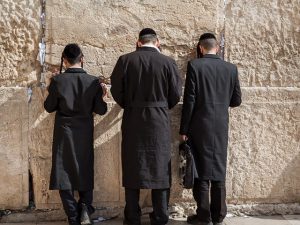
Jews at the Western Wall, Pixabay
Religious Zionism: So today many Jews hold a biblical view of Zionism. After all, the biblical promises of a land for the Jews and a return to the Temple in Jerusalem were enshrined in Judaism. These “Zionist Jews” (Mainstream Orthodox Jews) are not political, although they support the establishment of a Jewish state in the Land of Israel. They see the formation of the Jewish state of Israel as accelerating the process of redemption, with themselves playing a major role in doing God’s will by serving the state. They see Zionism as the idea that Jews can self-determine in the land of Israel before Moshiach (their Messiah) arrives. In this sense, these Jews might see the State of Israel as “of man”, but aiding God’s plans.
Jewish Opposition to the State of Israel: Some Jews (12% of Israel’s population in 2017) are “religious Zionists” in that they accept the Zionist concept of a homeland for the Jews, but pay little heed to the modern State of Israel (which they see as secular, even blasphemous). The anti-Zionist ultra-Orthodox groups Neturei Karta and Satmar Hasidism reject modern Zionism and the State of Israel on the grounds that only God could restore Israel. So they await their Moshiach to restore Israel, whilst opposing the modern hi-tech State of Israel. These are anti-Zionist i.e. anti-State Jews, link. To these Jews, the State of Israel is vigorously opposed and definitely “of man”.
Zionism and Israel’s Government: With the exception of ultra-Orthodox Jews, Zionists generally agree that the State of Israel should exist, but disagree on what Israel’s government should look like. The Zionist left prefers a secular government and is inclined to trade Israeli-controlled land for peace with Arab nations. The Zionist right tends to be more skeptical of “land-for-peace” deals and is more comfortable mixing religion and politics. Recent events, as in the 2018 Nation-state Law, imply that the modern State of Israel is looking to its Jewish heritage and the biblical promises in the Jewish scriptures. In this sense, many Jews might see the State of Israel as “of God”.
The Jewish State: What does the Bible say?
Bible scholars note that Israel, the modern nation, was literally ‘born in a day’, as prophesied in the Bible. The date: May 14, 1948.
Who has ever seen anything as strange as this? Who ever heard of such a thing? Has a nation ever been born in a single day? (Isa 66.8, NLT)
If May 14, 1948 really was a literal fulfillment of this prophecy, it seems fair to claim that God planned the modern State of Israel i.e. it is “of God”. Recent fulfilled prophecy provides overwhelming evidence to underscore this claim. For example, within just 100 years the Jewish population of Israel has risen an amazing 7,700 percent. Why? It is a fulfillment of prophecies which say that God will take His people from all the nations and bring them back into their own land (as promised to Abraham):
Behold, I will take the sons of Israel from among the nations where they have gone … and bring them into their own land (Ezekiel 37.21)
Through aliyah God was (and still is) redeeming His chosen nation:
And who is like Your people, like Israel, the one nation on the earth whom God went to redeem for Himself as a people, to make for Himself a name … (2 Samuel 7.23, emphasis added)
Such a rapid and large influx of people with a common identity and vision (as provided in Judaism) required a governmental framework with laws. This came to fruition in May 1948. Although secular in declaration, the democratic State of Israel appears to be an ordered mechanism for the fulfillment of prophecy.
The State of Israel – First of TWO Steps
The Declaration of the State of Israel in 1948 was the first and necessary step towards the establishment of Christ’s Kingdom upon earth. Although essentially secular, the state is needed for several reasons:
- to encourage the Jews to come from out of the nations and immigrate to their own land. To quote the Declaration: “THE STATE OF ISRAEL will be open for Jewish immigration and for the Ingathering of the Exiles”. As of 2018, Israel’s 6.5 million Jews accounted for 44.5% of Jews worldwide, link. This immigration is a literal fulfillment of God’s land covenant with Abraham (Gen 17:7,8)
- A Jewish state has to exist in order for Israel to sign a (false) seven-year covenant with the coming world dictator (Dan 9:27a). It soon transpires that Israel has made “a covenant with death” (Isa 28:15) and great tribulation follows
The Great Tribulation: Once the Jews have been regathered in unbelief, the world dictator breaks his covenant and starts to persecute them (Dan 9:27b). Some see Dan 11:35-45 and especially Mat 24:15-22 to be descriptions of the invasion of Israel by the world dictator. Ezekiel explains that this persecution is to refine them:
I will bring you out from the peoples and gather you from the lands where you are scattered, with a mighty hand and with an outstretched arm and with wrath poured out; and I will bring you into the wilderness of the peoples, and there I will enter into judgment with you … I will make you pass under the rod, and I will bring you into the bond of the covenant; and I will purge from you the rebels and those who transgress against Me … Thus you will know that I am the Lord. (Ezek 20:34-38)
The point here is that the Jews are regathereTd in unbelief. Today, apart from a small percentage of Messianic Jews, most Jews in Israel do not recognize Yeshua as their promised Messiah (Heb: Mashiach). Ezekiel, and Zephaniah (2:1-2) makes it clear that regathering is prior to God’s judgments. It is only through the great tribulation judgments (Mat 24:15-22) that the regathered Jews are purged of rebels. Just one third come through the ‘fire’ and are refined as silver (Zech 13:9). Only when under great tribulation do the regathered Jews look upon Yeshua who they pierced, and mourn for Him (Zech 12:10-14).
Understanding Israel’s Flag
In 1897, the First Zionist Congress (held in Basel, Switzerland) considered re-establishing a homeland for Jews in Palestine. The Congress needed a flag, and suddenly it was realized that Israel already had the basis of a flag – the tallit, the traditional Jewish blue and white prayer shawl. Israel’s flag was then designed to have two blue stripes and a large blue Star of David in the center, link. The blue stripes symbolized the stripes on the tallit, whilst the Star of David is a widely acknowledged symbol of the Jewish people.
Biblical Background: In the Orthodox Jewish Bible (OJB) we read:

Speak unto the Bnei Yisroel (the children of Israel), and bid them that they make them tzitzis (tassels or knotted fringes – tzitzis is a pronouncement of tzitzit) on the (four) corners of their garments throughout their derot (generations), and that they put upon the tzitzis of the corners a thread (string) of turquoise (blue-violet) wool; and it shall be unto you for a tzitzit, that ye may look upon it, and remember all the mitzvot Hashem (commandments of the Lord), and do them; and that ye follow not after your own lev (heart) and your own eyes, after which ye used to go a-whoring (Numbers 15:38-39, OJB. See also Complete Jewish Bible)
The significance of tassels: The tassels were God’s way of giving the Israelites a tangible reminder to keep his commandments – like a piece of string tied around the finger, or a knot in the handkerchief.
The significance of ‘blue’: The Israelites are commanded to tie a string or thread of tekhelet (a shade of blue) to the corner fringes of their garments as a constant reminder of their special relationship with God. Tekhelet (a blue coloured dye) was God’s chosen colour for the Israelites and is mentioned 49 times in the Hebrew Bible/Tanakh, link. So a blue cloth was used to cover the ark of the covenant, tekhelet drapes adorned Solomon’s Temple, and tekhelet robes were worn by Israel’s high priests. Today the blue threaded tzitzit on Jewish prayer shawls reminds worshipers of the sea, the sky and God’s holiness.



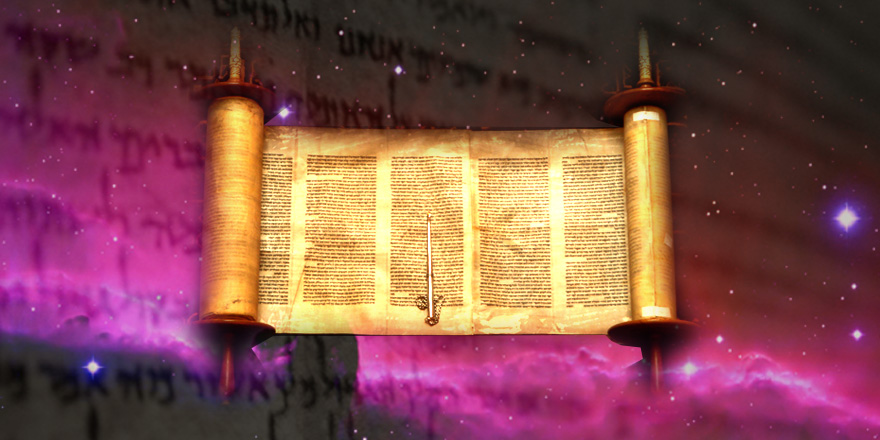



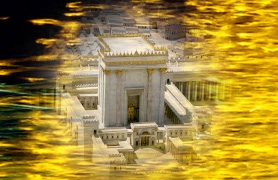

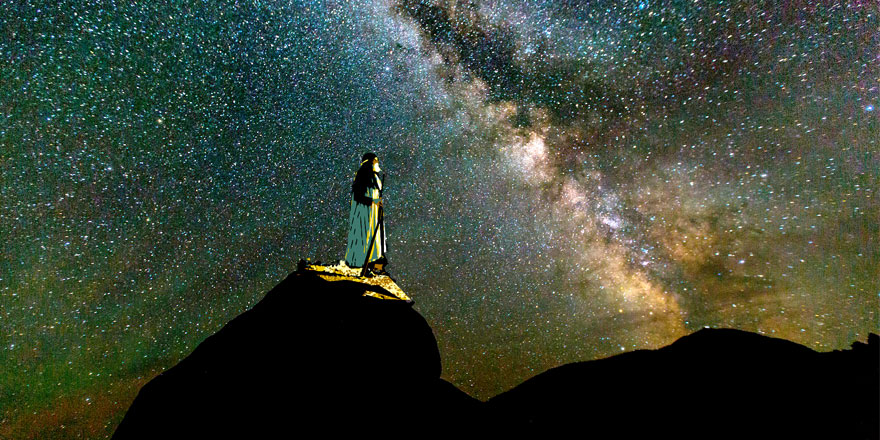



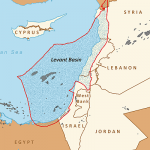








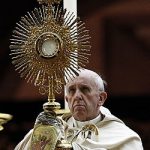




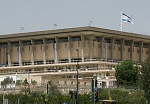



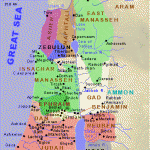


I strongly believe that God is running the whole show for His kingdom to be established as the holy Bible has stated it. His kingdom is very near. Jesus Christ will be our Lord of lords and King of kings. I long to see my Lord comes back.